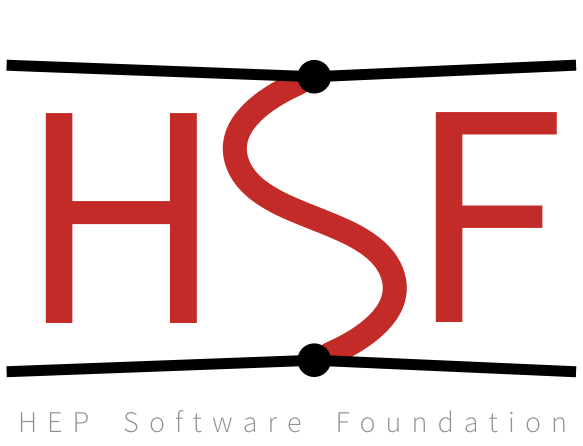HSF/IRIS-HEP Software Basics Training at CERN (Hybrid)



We are very excited to announce that the workshop on software basics in HEP organised through the HEP Software Foundation and IRIS-HEP will take place at CERN (30/7-018 Kjell Johnsen Auditorium) and also via Zoom. We are very grateful for financial support from CERN EP-SFT and HSF.
The times for the workshop are in CEST time zone (CERN time).
Over three days we will cover the fundamentals of:
Unix (e.g. shell, bash and scripting)
https://hsf-training.github.io/hsf-training-unix-shell/
Git and Github – how to version control your code
https://hsf-training.github.io/git-novice/ (extended version of https://swcarpentry.github.io/git-novice/)
Python – fundamentals of using the Python language
https://hsf-training.github.io/analysis-essentials/python/README.html
https://swcarpentry.github.io/python-novice-inflammation/
http://swcarpentry.github.io/python-novice-gapminder/
Python for Analysis – how to analyze data in Python either with PyROOT or with the tools from Scikit-HEP
This training is aimed at those who are new to HEP and want a fast-track to competency with software fundamentals, as well the non-expert self-taught who wish to ensure they do not have gaps in their knowledge.
The training material will be taught by tutors expert in HEP software. Interactive hands-on sessions lead by the tutor will be supported by a number of helpers to ensure all participants are able to follow and understand the material.
Given the limited number of participants, all participants are expected to attend the whole workshop.
This is a hybrid event and no payment is required for attending. Participants are required to have their own laptop for the workshop.
Please contact the organizers (email us) in case of any questions.
Notes for Participants
Please log in to indico to see all links in the menu bar on the left.
If you are at CERN, you can find all the information about the venue here: 30/7-018 Kjell Johnsen Auditorium
To participate in discussions online for the workshop we use a slack channel. You should receive a slack invite via email before the workshop. Make sure to join. All software training related communication should be made via slack.
Make sure you complete the setup instruction below BEFORE the event. Should there be any questions, please ask in the Slack channel.
To participate in the workshop, you will need access to the software described below "prerequisites". In addition, you will need an up-to-date web browser.
Please note that the workshop will be recorded and that the videos will be publicly available.
Prerequisites
For a video walk-through of the installation process, please visit the indico page of our previous event.
The Bash Shell
Bash is a commonly-used shell that gives you the power to do simple tasks more quickly.
Git
Git is a version control system that lets you track who made changes to what when and has options for easily updating a shared or public version of your code on github.com. You will need a supported web browser.
You will need an account at github.com for parts of the Git lesson. Basic GitHub accounts are free. We encourage you to create a GitHub account if you don't have one already. Please consider what personal information you'd like to reveal. For example, you may want to review these instructions for keeping your email address private provided at GitHub.
Text Editor
When you're writing code, it's nice to have a text editor that is optimized for writing code, with features like automatic color-coding of key words. The default text editor on macOS and Linux is usually set to Vim, which is not famous for being intuitive. If you accidentally find yourself stuck in it, hit the Esc key, followed by : + q + ! (colon, lower-case 'q', exclamation mark), then hitting Return to return to the shell.
Python
Python is a popular language for research computing, and great for general-purpose programming as well. Installing all of its research packages individually can be a bit difficult, so we recommend Anaconda, an all-in-one installer.
Regardless of how you choose to install it, please make sure you install Python version 3.x (e.g., 3.9+ is fine).
We will teach Python using the Jupyter notebook, a programming environment that runs in a web browser. For this to work you will need a reasonably up-to-date browser. The current versions of the Chrome, Safari and Firefox browsers are all supported (some older browsers, including Internet Explorer version 9 and below, are not).
ROOT
ROOT is an open-source data analysis framework widely used by high-energy physicists. In all the HEP experiments it has become a fundamental tool, and you will have to learn the basics. You can read more about ROOT on the official webpage.
For this workshop, no ROOT installation is required. Instead, we will use ROOT via Jupyter Notebooks. Before the workshop starts, please visit https://github.com/root-project/student-course and read the instructions on the main page. Open GH Codespaces and let it load. You do not need to do anything else before the workshop. In case you have a CERN Computing account, you can also use SWAN with the Bleeding Edge configuration. If so, please click on the SWAN icon and verify that you can open the student-course folder. In case of any issues, we can solve them at the beginning of the ROOT session.
If you want to install ROOT on your machine (not needed for this workshop), please follow the [Installing ROOT](https://root.cern/install/) webpage
Scikit-HEP
The Scikit-HEP project is a community-driven and community-oriented project with the aim of providing Particle Physics at large with an ecosystem for data analysis in Python.
How to participate
Run the JupyterLab code with us, altering examples and asking "what if" questions along the way. Please, visit https://github.com/ianna/2025-06-20-hsf-iris-hep-uproot-awkward-tutorial and read the instructions on the main page.
Running everything on your own computer
Everything can be installed with conda, standard mechanism for installing Python packages. See environment.yml for a list of package names and versions.
Instructors
- Andres Rios-Tascon (Princeton University)
- Callum McCracken (The University of British Columbia)
- Jonas Eschle (CERN)
- Ianna Osborne (Princeton University)
- Marta Czurylo (CERN)
- Jonas Rembser (CERN)
- Martin Foll (CERN)
- Marco Mambelli (Fermilab)
- Michel Hernandez-Villanueva (BNL)
- Valeriia Lukashenko (University of Zurich)
- Alexander Moreno (Universidad Antonio Nariño)
- Richa Sharma (UPRM)
- Roy Cruz (UPRM)
- Iliomar Rodriguez-Ramos (UPRM)
Organising committee:
- Michel Hernandez-Villanueva (BNL)
- Richa Sharma (UPRM)
- Valeriia Lukashenko (University of Zurich)
- Alexander Moreno (Universidad Antonio Nariño)
- Sudhir Malik (UPRM)
